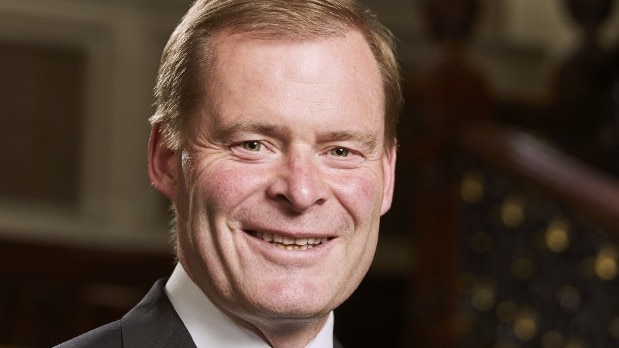University of Adelaide donors question payout to former vice-chancellor Peter Rathjen
University of Adelaide to reassure benefactors that none of their money has been used to pay out Peter Rathjen.

The University of Adelaide has convened a top-level meeting to reassure unhappy benefactors that none of their money has been used to pay out disgraced former vice-chancellor Peter Rathjen.
Chancellor Cathy Branson held a remote meeting on Friday with some of Adelaide’s most cashed-up families seeking answers from the university over its handling of Professor Rathjen’s sexual misconduct and the fact that he was paid $326,400 despite being under investigation by SA’s corruption commission.
The Australian has spoken to two benefactors who say they are unimpressed with the affair and that some are even threatening to pull their cash.
The university is trying to be transparent with all its stakeholders as it works through the Rathjen scandal, and Friday’s meeting followed an all-staff hook-up last week where every university employee was given the chance to ask any question they liked about Professor Rathjen’s appointment and subsequent departure due to ill-health in July while under the cloud of the probe by the Independent Commission Against Corruption.
Friday’s meeting was the second in the series and organised by UA several weeks ago for donors, volunteers and members of alumni council, with 62 people dialling in remotely. A similar meeting will be held for UA students next week.
Sources said Friday’s meeting followed the same script as last week’s staff address, an audio copy of which has been obtained by The Australian.
Ms Branson talked of her dismay at what had occurred, describing it as “a profoundly disturbing time” and saying the university needed to “move forward with confidence and strength”.
“This is a fine university, it is a world-class university, the highest-ranked university in this state by a good margin and one of the top eight universities in the country,” Ms Branson said.
“We were also badly let down by our former vice-chancellor.
“We now know that the vice-chancellor deceived the former chancellor (Kevin Scarce) and that there were other instances of misbehaviour of which he kept his council in ignorance.”
Ms Branson was joined at that staff meeting by other senior university executives including deputy chancellor David Hill, the deputy chief executive of Deloittes, who was with Ms Branson on the selection committee chaired by Mr Scarce which appointed Professor Rathjen in 2018.
Benefactors asked Ms Branson to guarantee no donations had gone towards his payout, with Ms Branson reassuring them that scholarship money “can’t be touched”.
Mr Hill also spoke at Friday’s meeting where he repeated his reassurances that the university knew nothing about Professor Rathjen’s behaviour when he was appointed. He said UA had hired headhunting firm Perrett Laver, which he described as “one of the world’s leading executive search firms”, to conduct due diligence into Professor Rathjen.
“Sadly, very unfortunately and very regrettably none of those searches uncovered any information that was raised as a concern with the selection panel,” Mr Hill said.
The search firm also contacted the University of Melbourne — where the ICAC report found Professor Rathjen had been investigated for serious misconduct before being hired by UA — and also the University of Tasmania where he had been vice-chancellor before assuming the role at UA.
“Again, most unfortunately and very regrettably, no adverse findings of those interviews and that reference checking was raised with the selection panel,” he said.
Mr Hill said the selection process for the new vice-chancellor would be even more stringent and involve psychometric testing and a new search firm, Heinrick & Struggles, to vet all candidates.
A UA spokesman said the university was committed to informing all its stakeholders about its response to the ICAC report.
“The university has organised a number of forums with key stakeholders to discuss the ICAC findings and how we’re responding to them,” he said.




To join the conversation, please log in. Don't have an account? Register
Join the conversation, you are commenting as Logout